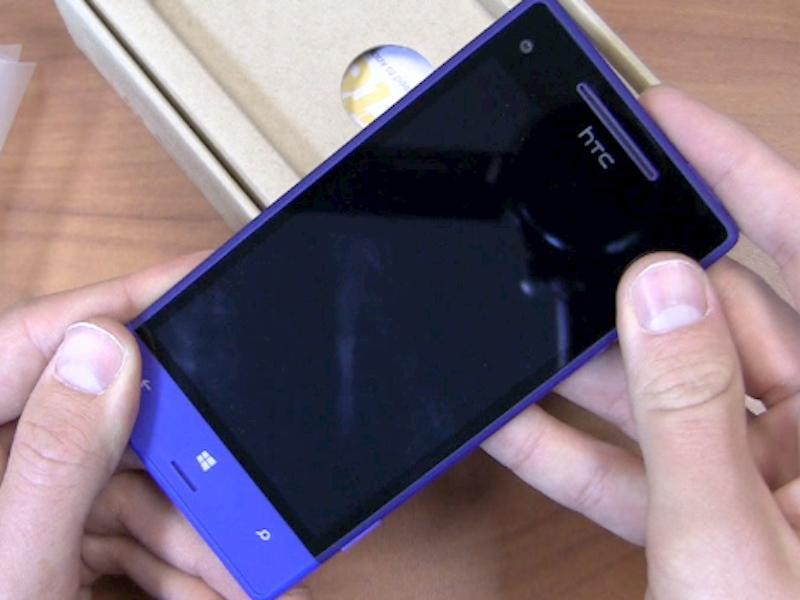
If you're following along with Windows Phone, then you know things are getting interesting for the Redmond-based company behind the mobile operating system. There have been some . . . curious (yeah, we'll go with curious) decisions made in the past that have made more than a few people scratch their head, and it doesn't look like that's going to stop anytime soon.
The question of whether or not Windows Phone needs new hardware is still up in the air. Some would tell you that they need to keep up, or try to catch up, to the major competition in the smartphone race within the hardware side of things so that people can get interested in their devices. Others would say that it's about time Microsoft just work with what they have, and do whatever it takes to start securing more applications.
There's more than a little bit of truth in both scenarios, though. Windows Phone's presence in the market isn't huge, but if you look at the world like Steve Ballmer, the CEO on-the-way-out at Microsoft, that just means there's plenty of room to grow and capitalize.
In truth, that's a good way to look at things. Because it's true.
Windows Phone does still have a lot of potential. Think about it: If more applications is all Windows Phone needs to succeed, then that should be a pretty scary proposition for Android or even iOS. The apps will come. Some day. Maybe.
The strange part keeps coming in these weird moves by Microsoft, the ones that really stand out while you're reading about them in the news. An example would be hearing about Microsoft's and Nokia's partnership deal, and then watching Microsoft announce the Windows Phone 8X . . . by HTC. That device was launched with plenty of attention from Microsoft. It even had the operating system name in the phone title. It was strange, yes, especially considering the Lumia devices rarely get the same amount of attention.
Which is odd in and of itself, simply because Microsoft practically owes any of its market presence to Nokia. So, you'd think they'd be giving all the love to what's working, and just trying to make it succeed even more.
The strategy must have been to drum up support for other manufacturers, so that it meant people were buying more devices, and not just one brand. If people are buying just one brand, then that inherently limits their options. If they're buying HTC and Samsung as well though, Microsoft is looking at overall more sales.
Now that Microsoft is in the process of buying Nokia's Devices & Services division, the belief is that Microsoft wants to emulate Apple's strategy, and make their own phones and software. That could work for Microsoft, especially if they can snatch some high-profile apps, and make hardware that's legitimately desirable. But, to do that, they'd have to be okay with other manufacturers stepping away from the Windows Phone game.
Apparently they're not ready to do that, though. A new report suggests that Microsoft is basically throwing anything they can at HTC to make sure that they continue to use Windows Phone in the future. Why? Because with HTC still taking hits in the earnings department, it's no surprise that reports suggest HTC is done with Windows Phone devices moving forward. Instead of letting HTC fade into the shadows gracefully, Microsoft is refusing to let them go without a fight.
The ideas? Things like: let's let people have the ability to select Windows Phone or Android as a device's main operating system before they buy it. (Which is good, in theory, because it means customization for consumers, maybe even something like Moto Maker -- but even more advanced.) Or, just toss Windows Phone onto old devices that previously ran Android, but have apparently run their course. (So, essentially, wait a year and then launch a Windows Phone. An HTC One with Windows Phone in 2014? Fingers crossed!)
The other idea, and the idea I just can't find any interest in at all, is to let HTC dual-boot Windows Phone and Android. This makes less sense than BlackBerry dual-booting Android and BlackBerry 10. I like switching devices and using new mobile operating systems all the time, but I can't think of one reason why I'd ever want to switch between Windows Phone and Android on the same device. Frankly, the first two options just make more sense.
Microsoft made the obvious move to seriously become a company that creates their own hardware and software, but now it just sounds like they don't even trust themselves to do that. I'm very, very intrigued by a future that has Microsoft in charge of their hardware and software, just to see what kind of phone they'd develop. I think they could do well. But if they're lacking confidence in that decision, then maybe it's not such a good idea after all.
What do you think of the latest reports on Microsoft's future plans? Would you want a phone that lets you dual-boot Windows Phone and Android? Let me know!